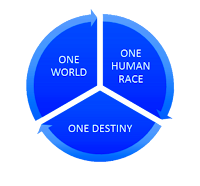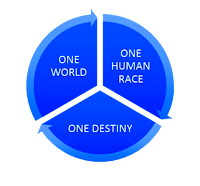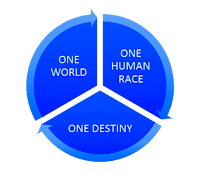JUST PHILOSOPHISING - THE POWER OF GRIEF. PART.3
Contemplating further on grief and grieving, it seems to me that it is an unavoidable and inescapable condition of all humans who are capable of showing empathy, of making a commitment to, of caring for, of loving another person.
A process by which you become a part of that other person and that person become a part of you. Not of your physical self, but of your psychological and social self. Depending on the intensity and duration of your commitment to that other person, the greater is likely to be the felt grief and the extent of our grieving, should we have to endure the trauma of losing that person.
With our sense our state of grief and grieving being mitigated or magnified, probably according to whether the lost is permanent of temporary. As ironic as it might be or seem, our grief could be more intensely felt when our loss is for a long-term, though not permanent period of time. This could be because, temporary and long-term but not permanent loss, as opposed to that arising from death, leaves us with too many conflicting thoughts.
Temporary and long-term loss presents us with the possibility of reuniting with the person we have temporarily lost, while also denying us the power or control to effect, let us, a reunion. For example, if someone is taken from us through incarceration, there is the expectation that they will be returned to us at the end of that process, but, in the meantime, we are powerless to bring an end to the separation.
Similarly, if our relationship with a much loved partner in whom we have invested a great part of ourself breaks down, although technically it could resume at some point in the future, in the meantime we might have to suffer the trauma of living with the thought and knowledge of that person enjoying living with another person.
Conversely, when grief and grieving is focused on the death of a person we had invested a lot of ourselves into, there is no duality involved. The person is now death, and, although we might find it difficult to believe and accept that, it is a irrefutable fact. This person is not going to come back to us, therefore the ending of our grieving is not dependent on that person ending it.
Only us, the grieving person, with whatever support is needed, can bring it to an end, by working it through. Of course, there are times when some of us, in our grief, refuse to let go of that other person, and is therefore unable to take back control of and resume our living, without that person playing the part they had played in the past.
As I see it, the relevant customs and mores of each society can either help to make the grieving process more difficult or less distressful. However, for the purpose of this post, I do not intend to delve into that aspect of grieving.
To be continued.










Comments